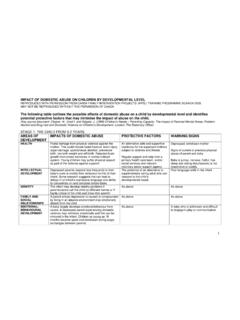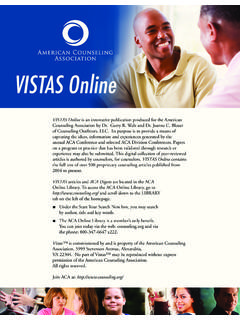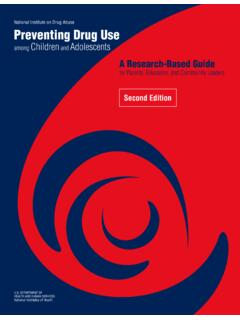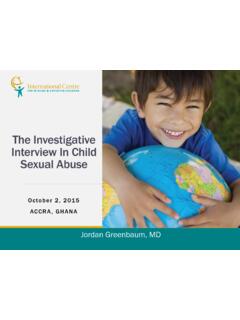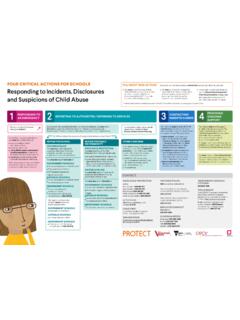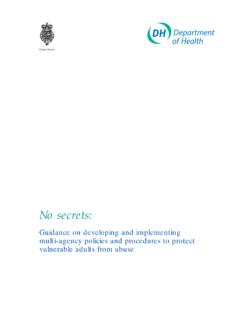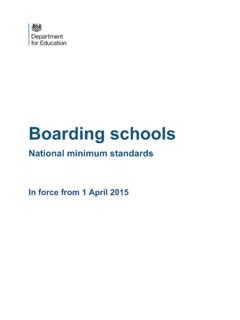Transcription of SOCIAL AND DEVELOPMENTAL HISTORY
1 SOCIAL AND DEVELOPMENTAL HISTORY Student s Name: _____ Gender: M F Current School: _____ Grade: ____ Date of Birth: ___/____/_____ Parent s Names: _____ Address: _____ Email: _____ _____ Telephone: Home: (_____) _____ Cell: (_____) _____ Legal Guardian Status (check at least one) Biological Parents Adoptive Parents Family/Children Services ___ Biological Mother ___ Adoptive Mother Court (Specify) _____ ___ Biological Father ___ Adoptive Father Other (Specify) _____ Marital Status of Parents (check one) Married Single Married, living apart Divorced (check custody status) Joint Custody Sole Custody (Mother or Father- circle one) Does child have visitation with non-custodial parent?
2 Yes No List the names and ages of all people currently living at your child s residence: Name Relationship to Child Age and Primary Education Level Language _____ _____ _____ _____ _____ _____ _____ _____ _____ _____ _____ _____ What is your child s primary language? _____ Are there other languages spoken in the home? YES NO If so, what language(s)? _____ GENERAL INFORMATION Briefly describe your child s strengths: _____ In your opinion, why is your child being referred for evaluation? MEDICAL HISTORY Pregnancy: Please describe any complications, medications taken, or other concerns experienced during pregnancy ( , high blood pressure, toxemia, gestational diabetes, etc.)
3 _____ Birth/ Delivery: Was the child full term? Yes No Duration of Pregnancy: _____ Cesarean Section? Yes No Birth Weight: _____ Please describe any complications with the birth/delivery or after delivery: _____ _____ Current Medical Status: Has the child had any serious injuries, illnesses, hospitalizations, surgeries, or traumatic events? Event Child s age at the time? _____ _____ _____ _____ _____ _____ Current Medical Diagnosis (if any) Physician s Name Date _____ _____ _____ _____ _____ _____ Current Medications Medication Dosage Prescribing Physician/Date Prescribed _____ _____ _____ _____ _____ _____ Vision and Hearing: Date of last vision exam: _____ Results: _____ Vision problems: YES NO Glasses?
4 YES NO Contacts? YES NO Date of last hearing exam: _____ Results: _____ Hearing problems? YES NO Age Detected: _____ Hearing aids? YES NO Cochlear Implant? YES NO Date: _____ Tubes in Ears? YES NO Date: _____ Mental Health: Has the child ever been to a counselor, therapist, psychologist or psychiatrist? YES NO If yes, please explain: _____ _____ Outside Evaluations: Has your child been evaluated outside of the public-school environment? YES NO If yes, by whom? _____ **Please attach a copy of the evaluation report. Family HISTORY : Do you have a family HISTORY (biological parents, siblings, grandparents, aunts, uncles, cousins) of any of the following?
5 Check all that apply: Learning difficulties (reading, spelling, writing, math, organization) Speech or Language difficulties (articulation, stuttering, trouble recalling words, etc.) Emotional difficulties (depression, anxiety, mood swings, psychosis, etc.) Cognitive difficulties (may have been referred to as mental retardation or mental handicap) Genetic medical conditions abuse or domestic violence (this includes any abuse or violence the child has experienced as well as any the child has witnessed or is aware of within the home/family) Substance abuse (drug or alcohol) Please describe: _____ DEVELOPMENTAL INFORMATION: Age Age Age Sat alone: _____ Spoke 1st word: _____ Toilet Trained: _____ Crawled: _____ Put several words together: _____ Dry at night: _____ Walked alone: _____ Spoke in complete sentences: _____ Please describe your child s early temperament.
6 _____ What concerns (if any) do you have regarding your child s development or behavior? _____ Are there conditions at home that may be influencing your child s development and/or behavior ( family illness, marital issues, etc.)? YES NO If yes, please explain: _____ ADAPTIVE BEHAVIOR: Does your child have any difficulty or delay in the following areas? Please check all that apply and describe on the space provided. Communication Skills: Making or producing speech sounds _____ Understanding language _____ Using language to communicate _____ Understanding SOCIAL communications _____ Reading/understanding body language and nonverbal communication _____ Oral Motor Skills: Chewing solid food _____ Drinking from a cup _____ Drinking through a straw _____ Excessive drooling _____ Swallowing problems _____ Sensitivity to different textures of food/ drink _____ Sensitivity to different temperatures of food/drink _____ Motor Skills.
7 Walking _____ Running _____ Jumping _____ Climbing stairs _____ Walking on uneven surfaces _____ Balance _____ Manipulating small objects with hands _____ Using silverware or writing utensils _____ Tying shoes, using zippers, buttons, etc. _____ Independent Living Skills: Feeding self _____ Dressing self _____ Personal hygiene _____ Toileting _____ Bathing self _____ Performing assigned chores _____ Responses to Sensory Experiences: Does your child display any unusual or atypical behaviors, responses, or sensitivities in any of the following areas? This may appear as though the child is experiencing a sensation or feeling to a degree that doesn t match the event- or behaves in a way that seems over the top given the context of the situation.
8 Taste _____ Smell _____ Movement ( walking or moving in a clumsy manner). _____ Tactile (touch/texture) (agitated or stimulated by certain fabrics or surfaces) _____ Visual _____ Auditory/ filtering ( may be overwhelmed by sounds and cover their ears, or may need to have music or background sound on at all times) _____ Activity level/weakness ( a child who seems overly active or severely tired and weak in a manner that does not fit their age, recent activity level or recent amount of sleep) _____ Other (please describe) _____ Patterns of Emotional Adjustment: Do you consider any of the following to be a problem for child at this time? Please check all that apply: Activity/Attention: Fidgets, is easily distracted, has a hard time staying seated, has a hard time waiting for his/her turn Talks excessively, interrupts often, doesn t listen Often loses things, very disorganized compared to others of his/ her age Poor concentration Difficulty following instructions Difficulty initiating or completing tasks (circle one or both) Emotional.
9 Often depressed, irritable mood Low energy, fatigue Shy Excessive separation difficulties Easily frustrated Overly anxious or fearful Feeling of worthlessness/low self-esteem Withdrawn Cries easily Sleeping too little Sleeping too much Excessive need for reassurance Difficulty making decisions Temper tantrums Rapid mood changes Suicidal thoughts Unrealistic worry about future events Poor appetite Overeats Behavioral: Engages in impulsive behavior (acts before thinking) Immature compared to peers Engages in physically dangerous activities Often argumentative with adults Often actively defiant to adult requests and rules Often deliberately does things to annoy others Aggressive towards others (Peers / Adults) Lies Steals Substance abuse (Drug / Alcohol) Explosive temper with minimal provocation Please explain any checked items _____ Unusual or Atypical Behaviors: Does your child display any of the following behaviors?
10 Please check all that apply Preoccupation with specific subjects, topics or objects that is atypical in intensity of focus Eccentric forms of behavior (sometimes referred to as quirky, odd, free-spirited; a person who exhibits eccentric behavior doesn t seem to be concerned with what others are doing, wearing, saying, etc.) Lack of awareness or sensitivity to the needs or feeling of others Facial expression or emotional responses that are not appropriate or consistent with the circumstances A need or desire to do things in a very specific way or order, or rituals that must be followed Odd mannerisms or ways of moving his/her body (examples: repetitive foot tapping, rocking, swaying- can be purposeful or unconscious) Self-injury Difficulty understanding jokes or humor Difficulty adjusting to new surroundings Difficulty adjusting to change in plans or routine Other Please explain any checked items: _____ _____ SOCIAL SKILL INFORMATION How does your child get along with adults at home?
